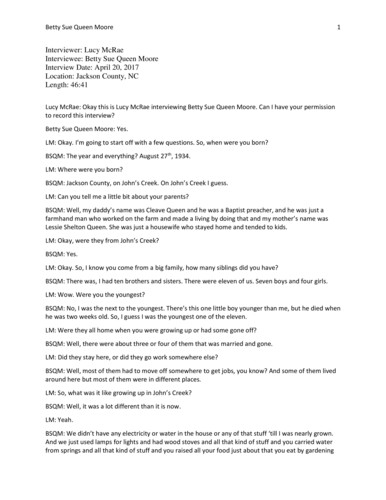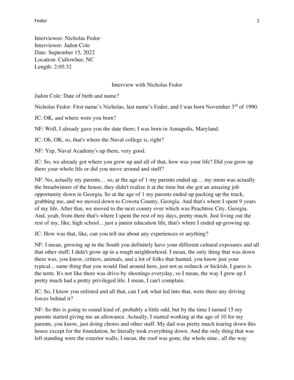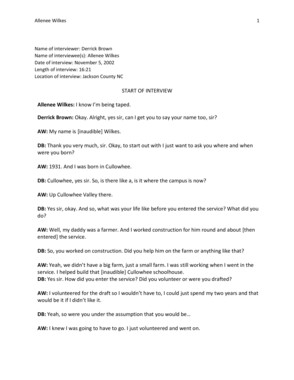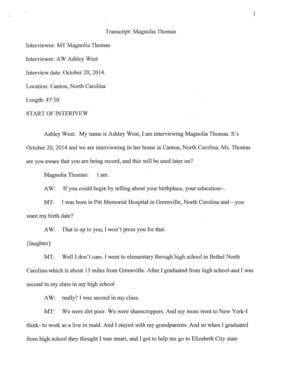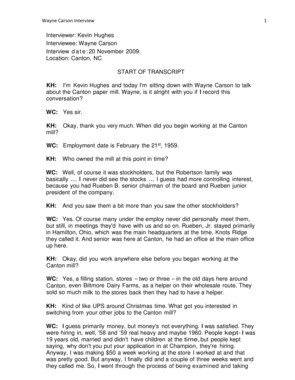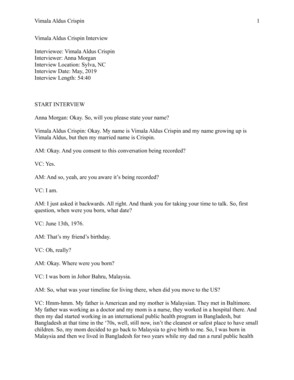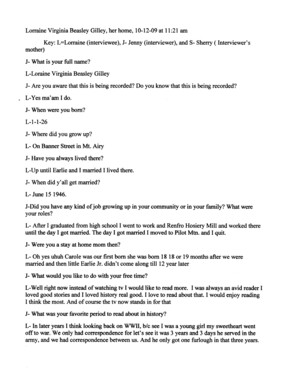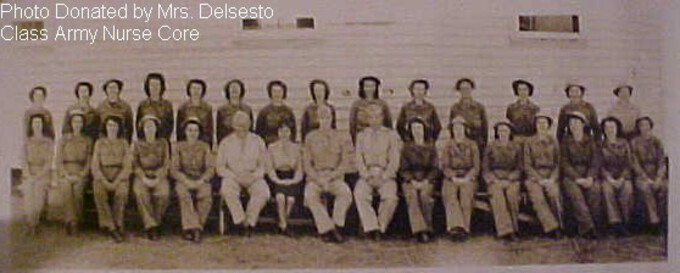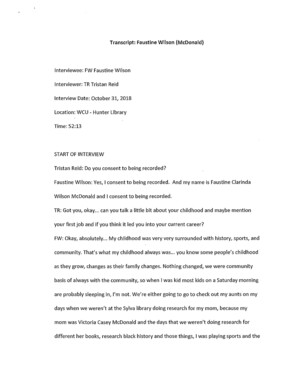Western Carolina University (20)
View all
- Canton Champion Fibre Company (2308)
- Cherokee Traditions (293)
- Civil War in Southern Appalachia (165)
- Craft Revival (1942)
- Great Smoky Mountains - A Park for America (2767)
- Highlights from Western Carolina University (430)
- Horace Kephart (941)
- Journeys Through Jackson (154)
- LGBTQIA+ Archive of Jackson County (26)
- Oral Histories of Western North Carolina (314)
- Picturing Appalachia (6772)
- Stories of Mountain Folk (413)
- Travel Western North Carolina (160)
- Western Carolina University Fine Art Museum Vitreograph Collection (129)
- Western Carolina University Herbarium (92)
- Western Carolina University: Making Memories (708)
- Western Carolina University Publications (2283)
- Western Carolina University Restricted Electronic Theses and Dissertations (146)
- Western North Carolina Regional Maps (71)
- World War II in Southern Appalachia (131)
University of North Carolina Asheville (6)
View all
- Allanstand Cottage Industries (62)
- Appalachian National Park Association (53)
- Bennett, Kelly, 1890-1974 (1388)
- Berry, Walter (76)
- Brasstown Carvers (40)
- Carver, George Washington, 1864?-1943 (26)
- Cathey, Joseph, 1803-1874 (1)
- Champion Fibre Company (233)
- Champion Paper and Fibre Company (297)
- Cherokee Indian Fair Association (16)
- Cherokee Language Program (22)
- Crowe, Amanda (40)
- Edmonston, Thomas Benton, 1842-1907 (7)
- Ensley, A. L. (Abraham Lincoln), 1865-1948 (275)
- Fromer, Irving Rhodes, 1913-1994 (70)
- George Butz (BFS 1907) (46)
- Goodrich, Frances Louisa (120)
- Grant, George Alexander, 1891-1964 (96)
- Heard, Marian Gladys (60)
- Kephart, Calvin, 1883-1969 (15)
- Kephart, Horace, 1862-1931 (313)
- Kephart, Laura, 1862-1954 (39)
- Laney, Gideon Thomas, 1889-1976 (439)
- Masa, George, 1881-1933 (61)
- McElhinney, William Julian, 1896-1953 (44)
- Niggli, Josephina, 1910-1983 (10)
- North Carolina Park Commission (105)
- Osborne, Kezia Stradley (9)
- Owens, Samuel Robert, 1918-1995 (11)
- Penland Weavers and Potters (36)
- Roberts, Vivienne (15)
- Roth, Albert, 1890-1974 (142)
- Schenck, Carl Alwin, 1868-1955 (1)
- Sherrill's Photography Studio (2565)
- Southern Highland Handicraft Guild (127)
- Southern Highlanders, Inc. (71)
- Stalcup, Jesse Bryson (46)
- Stearns, I. K. (213)
- Thompson, James Edward, 1880-1976 (226)
- United States. Indian Arts and Crafts Board (130)
- USFS (683)
- Vance, Zebulon Baird, 1830-1894 (1)
- Weaver, Zebulon, 1872-1948 (58)
- Western Carolina College (230)
- Western Carolina Teachers College (282)
- Western Carolina University (1794)
- Western Carolina University. Mountain Heritage Center (18)
- Whitman, Walt, 1819-1892 (10)
- Wilburn, Hiram Coleman, 1880-1967 (73)
- Williams, Isadora (3)
- Cain, Doreyl Ammons (0)
- Crittenden, Lorraine (0)
- Rhodes, Judy (0)
- Smith, Edward Clark (0)
- Appalachian Region, Southern (2399)
- Asheville (N.C.) (1917)
- Avery County (N.C.) (26)
- Blount County (Tenn.) (161)
- Buncombe County (N.C.) (1671)
- Cherokee County (N.C.) (283)
- Clay County (N.C.) (555)
- Graham County (N.C.) (233)
- Great Smoky Mountains National Park (N.C. and Tenn.) (510)
- Haywood County (N.C.) (3522)
- Henderson County (N.C.) (70)
- Jackson County (N.C.) (4692)
- Knox County (Tenn.) (25)
- Knoxville (Tenn.) (12)
- Lake Santeetlah (N.C.) (10)
- Macon County (N.C.) (420)
- Madison County (N.C.) (211)
- McDowell County (N.C.) (39)
- Mitchell County (N.C.) (132)
- Polk County (N.C.) (35)
- Qualla Boundary (981)
- Rutherford County (N.C.) (76)
- Swain County (N.C.) (2113)
- Transylvania County (N.C.) (247)
- Watauga County (N.C.) (12)
- Waynesville (N.C.) (73)
- Yancey County (N.C.) (72)
- Aerial Photographs (3)
- Aerial Views (60)
- Albums (books) (4)
- Articles (1)
- Artifacts (object Genre) (228)
- Bibliographies (1)
- Biography (general Genre) (2)
- Cards (information Artifacts) (38)
- Clippings (information Artifacts) (191)
- Crafts (art Genres) (622)
- Depictions (visual Works) (21)
- Design Drawings (1)
- Drawings (visual Works) (184)
- Envelopes (73)
- Facsimiles (reproductions) (1)
- Fiction (general Genre) (4)
- Financial Records (12)
- Fliers (printed Matter) (67)
- Glass Plate Negatives (381)
- Guidebooks (2)
- Internegatives (10)
- Interviews (812)
- Land Surveys (102)
- Letters (correspondence) (1013)
- Manuscripts (documents) (619)
- Maps (documents) (177)
- Memorandums (25)
- Minutes (administrative Records) (59)
- Negatives (photographs) (5835)
- Newsletters (1285)
- Newspapers (2)
- Occupation Currency (1)
- Paintings (visual Works) (1)
- Pen And Ink Drawings (1)
- Periodicals (193)
- Personal Narratives (10)
- Photographs (12976)
- Plans (maps) (1)
- Poetry (7)
- Portraits (1960)
- Postcards (329)
- Programs (documents) (151)
- Publications (documents) (2237)
- Questionnaires (65)
- Scrapbooks (282)
- Sheet Music (2)
- Slides (photographs) (402)
- Songs (musical Compositions) (2)
- Sound Recordings (796)
- Specimens (92)
- Speeches (documents) (15)
- Tintypes (photographs) (8)
- Transcripts (322)
- Video Recordings (physical Artifacts) (23)
- Vitreographs (129)
- Text Messages (0)
- A.L. Ensley Collection (275)
- Appalachian Industrial School Records (7)
- Appalachian National Park Association Records (336)
- Axley-Meroney Collection (2)
- Bayard Wootten Photograph Collection (20)
- Bethel Rural Community Organization Collection (7)
- Blumer Collection (5)
- C.W. Slagle Collection (20)
- Canton Area Historical Museum (2110)
- Carlos C. Campbell Collection (282)
- Cataloochee History Project (65)
- Cherokee Studies Collection (4)
- Daisy Dame Photograph Album (5)
- Daniel Boone VI Collection (1)
- Doris Ulmann Photograph Collection (112)
- Elizabeth H. Lasley Collection (1)
- Elizabeth Woolworth Szold Fleharty Collection (4)
- Frank Fry Collection (95)
- George Masa Collection (173)
- Gideon Laney Collection (452)
- Hazel Scarborough Collection (2)
- Hiram C. Wilburn Papers (28)
- Historic Photographs Collection (236)
- Horace Kephart Collection (861)
- Humbard Collection (33)
- Hunter and Weaver Families Collection (1)
- I. D. Blumenthal Collection (4)
- Isadora Williams Collection (4)
- Jesse Bryson Stalcup Collection (47)
- Jim Thompson Collection (224)
- John B. Battle Collection (7)
- John C. Campbell Folk School Records (80)
- John Parris Collection (6)
- Judaculla Rock project (2)
- Kelly Bennett Collection (1407)
- Love Family Papers (11)
- Major Wiley Parris Civil War Letters (3)
- Map Collection (12)
- McFee-Misemer Civil War Letters (34)
- Mountain Heritage Center Collection (4)
- Norburn - Robertson - Thomson Families Collection (44)
- Pauline Hood Collection (7)
- Pre-Guild Collection (2)
- Qualla Arts and Crafts Mutual Collection (12)
- R.A. Romanes Collection (681)
- Rosser H. Taylor Collection (1)
- Samuel Robert Owens Collection (94)
- Sara Madison Collection (144)
- Sherrill Studio Photo Collection (2558)
- Smoky Mountains Hiking Club Collection (616)
- Stories of Mountain Folk - Radio Programs (374)
- The Reporter, Western Carolina University (510)
- Venoy and Elizabeth Reed Collection (16)
- WCU Gender and Sexuality Oral History Project (32)
- WCU Mountain Heritage Center Oral Histories (25)
- WCU Oral History Collection - Mountain People, Mountain Lives (71)
- WCU Students Newspapers Collection (1744)
- Western North Carolina Tomorrow Black Oral History Project (69)
- William Williams Stringfield Collection (2)
- Zebulon Weaver Collection (109)
- African Americans (390)
- Appalachian Trail (35)
- Artisans (521)
- Cherokee art (84)
- Cherokee artists -- North Carolina (10)
- Cherokee language (21)
- Cherokee pottery (101)
- Cherokee women (208)
- Church buildings (167)
- Civilian Conservation Corps (U.S.) (110)
- College student newspapers and periodicals (1830)
- Dams (103)
- Dance (1023)
- Education (222)
- Floods (61)
- Folk music (1015)
- Forced removal, 1813-1903 (2)
- Forest conservation (220)
- Forests and forestry (1058)
- Gender nonconformity (4)
- Great Smoky Mountains National Park (N.C. and Tenn.) (181)
- Hunting (38)
- Landscape photography (10)
- Logging (103)
- Maps (84)
- Mines and mineral resources (8)
- North Carolina -- Maps (18)
- Paper industry (38)
- Postcards (255)
- Pottery (135)
- Railroad trains (71)
- Rural electrification -- North Carolina, Western (3)
- School integration -- Southern States (2)
- Segregation -- North Carolina, Western (5)
- Slavery (5)
- Sports (452)
- Storytelling (245)
- Waterfalls -- Great Smoky Mountains (N.C. and Tenn.) (66)
- Weaving -- Appalachian Region, Southern (280)
- Wood-carving -- Appalachian Region, Southern (328)
- World War, 1939-1945 (173)
Interview with Betty Sue Queen Moore
Item
Item’s are ‘child’ level descriptions to ‘parent’ objects, (e.g. one page of a whole book).
-
-
Betty Sue Queen Moore 1 Interviewer: Lucy McRae Interviewee: Betty Sue Queen Moore Interview Date: April 20, 2017 Location: Jackson County, NC Length: 46:41 Lucy McRae: Okay this is Lucy McRae interviewing Betty Sue Queen Moore. Can I have your permission to record this interview? Betty Sue Qqueen Moore: Yes. LM: Okay. I’m going to start off with a few questions. So, when were you born? BSQM: The year and everything? August 27th, 1934. LM: Where were you born? BSQM: Jackson County, on John’s Creek. On John’s Creek I guess. LM: Can you tell me a little bit about your parents? BSQM: Well, my daddy’s name was Cleave Queen and he was a Baptist preacher, and he was just a farmhand man who worked on the farm and made a living by doing that and my mother’s name was Lessie Shelton Queen. She was just a housewife who stayed home and tended to kids. LM: Okay, were they from John’s Creek? BSQM: Yes. LM: Okay. So, I know you come from a big family, how many siblings did you have? BSQM: There was, I had ten brothers and sisters. There were eleven of us. Seven boys and four girls. LM: Wow. Were you the youngest? BSQM: No, I was the next to the youngest. There’s this one little boy younger than me, but he died when he was two weeks old. So, I guess I was the youngest one of the eleven. LM: Were they all home when you were growing up or had some gone off? BSQM: Well, there were about three or four of them that was married and gone. LM: Did they stay here, or did they go work somewhere else? BSQM: Well, most of them had to move off somewhere to get jobs, you know? And some of them lived around here but most of them were in different places. LM: So, what was it like growing up in John’s Creek? BSQM: Well, it was a lot different than it is now. LM: Yeah. BSQM: We didn’t have any electricity or water in the house or any of that stuff ‘till I was nearly grown. And we just used lamps for lights and had wood stoves and all that kind of stuff and you carried water from springs and all that kind of stuff and you raised all your food just about that you eat by gardening Betty Sue Queen Moore 2 and stuff. You had your own eggs and chickens and milk and butter from your own cows and all that kind of stuff. LM: Would you say that’s harder or easier than… BSQM: Well, sometimes I think it was an easier and better life back then than it is now because you didn’t have problems with many things tearing up in the house that you didn’t have then, and it seemed like people was nicer and you visited your friends and families and all that stuff like you don’t do much anymore. LM: Yeah. BSQM: And sometimes I wished it was back like that, but I guess it’ll never be. LM: So, you were little during the Great Depression, but did it affect you or your family at all? BSQM: What? LM: I said you were little during the Great Depression… BSQM: Yes. LM: So, did it affect your family or you at all? BSQM: Well, it did them I guess, that was the year I was born when it was, but they had a hard time, you know, through that part. LM: Okay, and then so your dad worked- did he work on the parkway? BSQM: Yes, sometimes he worked on the what they called the state…I don’t know. It was just like building roads and clearing places for roads and stuff, and they had to walk across the mountains to out where the parkway and stuff is now and backwards and forwards to work. They walked in the real early of the morning and then back in the evening they walked across the mountains. LM: That’s a long way. BSQM: It sure is. LM: So, were your older brothers old enough to serve in World War Two? BSQM: Yes. LM: Did any of them serve? BSQM: Yes, I had two, well…one brother that was, he went in 1942, that was whenever they was really fighting in Japan and all them places and he left home to go be examined you know, to see if he passed to be in the Army and he never got to even come back home, they just took him straight on and he stayed like five or six weeks on this side in training, in Fort Bragg I think, and then they sent him overseas and he was in Japan and the Philippines and Australia and all them places through there. He stayed over there three and a half years before we ever seen him. And this was all after he left to just go be examined, you know. And then I had another brother that was later that was in Germany and he was stationed over there but he didn’t have to fight, that was after the war was over that he was over there but that was the only two that was in the Army. LM: Did you have chores as a child? Betty Sue Queen Moore 3 BSQM: Oh yes, we had to carry water and wood and gather up the eggs and feed the chickens and that kind of stuff. LM: So, I know there are lots of smaller schools around when you went to school, where did you go to school? BSQM: John’s Creek School. It was up there, well they just tore the old schoolhouse down three or four years ago. It was a brick building, when you go down John’s Creek and go out a that ways and it was on the road right there. LM: Was it just elementary, or was it elementary and middle, or? BSQM: Yeah, it was first grade through the seventh grade. And then after I got through the seventh, a few years later it went up to the eighth grade. But they didn’t have kindergarten and that kind of stuff, you just started in first grade. LM: Was that the preschool, or was there no preschool? BSQM: No. And you didn’t have to start at no certain time either, some kids started when they were five, some six, some seven. They just started when they wanted to I guess. LM: Were there multiple schools around here or was there…? BSQM: There was just the one up there. And there was always one down in Cullowhee I reckon, and then the one at John’s Creek, and there used to be one in Tucksegee up there, and right up there at East La Port, that brick building where they tore down up by that trailer, there used to be a school there a long, long time ago. Blanch White used to teach out there and, but then they done away with all the little schools and just went to Cullowhee later on. LM: What did you do in school? BSQM: Well, we had- it was different than it is now- we had regular reading and spelling and arithmetic and geography and history and just regular stuff. They don’t have that anymore, do they? LM: No. Do you remember any of your teachers? BSQM: Uh yes, I had Ferry Middleton, who was the principal when I was going to school up there and I was in his room one year, then Lenore Stacks, I was in her room, and Janie Hooper, and Den Vermon, he was up there but I wasn’t in his room, but I do remember several teachers that was there. LM: Did you stop going to school in seventh grade or did you keep going? BSQM: No, I quit at the seventh grade, that was as far as they taught up there and I wasn’t going to go to Cullowhee. LM: So, what church did you go to while growing up? BSQM: John’s Creek Baptist Church. LM: Oh! And how would you compare it to the church you go to now? BSQM: Well, it was just- well we had Sunday School classes for different ages and stuff and preaching and singing and all the stuff just about like what we do now. Only there was a lot more people that went to church back then and our church up there then they do at these small churches around now. Betty Sue Queen Moore 4 LM: What role would you say religion has played in your life? BSQM: Like Baptist, or? LM: Like what part does religion have in your life? BSQM: Oh, well I don’t know how to explain that, but I just know it’s the right way to do it, to go to church, I was raised to go to church. I went most of my life to some church, at different places and stuff. LM: I know how I’ve helped you with the flowers that you put on the graves. What is the significance of Decoration Day, or what was the significance? BSQM: Well, I guess mostly to show respect I guess that you remember them, and loved them, and you want to and that’s about all you can do, you know, after they’re gone. LM: Was it like a big event when you were a child? BSQM: Yes. It was, we always had to walk across the mountain and carried the big box of flowers and lunch and we always had dinner or lunch or whatever you want to call it and we would carry the food. We didn’t have sandwiches or little stuff like that, we had to cook stuff and it was heavy to carry. And it was different, a lot different than it is now. LM: So, you kept kids for a long time, including me, what was your first job? BSQM: Well I guess babysitting was my first job, yeah, I babysat for a little while then I worked at the school house, just as a maid or a janitor or whatever you’d like to call it, and then my mother got sick and I had to take care of her for two years, so I didn’t work so after she died I started back babysitting and I babysat until I was 80 years old. LM: How old were you when you started babysitting? BSQM: Well I was up in my fifties I guess, my early fifties. I babysat for about 25 years or something like that. LM: So, you worked at the Cullowhee School as a janitor? BSQM: Yeah, yeah not this new one over here but the old one. LM: Camp Lab? BSQM: Yeah. I worked five years there. LM: Wow. When did you start working as a…? BSQM: Well that was when Susan, let’s see she’s 51 and when she started school in kindergarten, at 5 years old, I worked five years. That was no fun. LM: You didn’t like being a janitor? BSQM: Huh? LM: You didn’t like being a janitor? BSQM: (inaudible) mess things up too bad. LM: Were there any rules or limitations to working? Because now you have to be 16 to work. Betty Sue Queen Moore 5 BSQM: No, not really back then. Whenever I worked down there I just… now you have to have a high school education to be a janitor or anything. LM: Do you think being a woman affected your choices of work? BSQM: Huh? LM: Do you think being a woman affected your choices of work? BSQM: Well back then there wasn’t much work that women did you know? Just like something like that or working in a cafeteria or you know, there wasn’t many jobs. Until the sewing plants and stuff like that came in. There weren’t many jobs for a woman back early. LM: What made you decide to want to keep kids? BSQM: Well that’s about all the choice I had to make some money to live on you know, I didn’t drive or anything. I could’ve gotten house cleaning jobs or things like that around Cullowhee, but I didn’t have transportation. I couldn’t afford to pay someone to take you and then have to come back and pick you up, no more than you would make doing that. Babysitting was just about the only choice I had. LM: Were the children you babysit different than you were as a child, were there big changes that you saw in the children? BSQM: Well back then when I was growing up, you didn’t know what babysitting was. Every mother was just at home with her kids. You didn’t have to take kids anywhere back then. There weren’t no women on John’s Creek where I was growing up, not a woman worked anywhere that I ever knew of except just at home. You had to tend to kids and do all the gardening and canning and all that kind of stuff. You had a job, really, you worked harder than you do now. LM: What has changed through your years of working? Has there been significant changes throughout your babysitting? BSQM: Well I don’t really know. Of course, now, the way kids are, and the way things are, the way the rules are, it’s hard to babysit. I wouldn’t want to right now, it’s worse than it’s ever been about rules and about spanking them and doing things and a lot of them tell us things on you that’s not true, and I don’t think I’d want to babysit anymore if I was able to do it. LM: Do you have any funny stories of taking care of kids? BSQM: Yes, a lot of them. From babysitting? LM: Mmhm. BSQM: Well it’s different every kid is different. So, like when I kept you and Nathan, you took turns biting each other and I’d spank one of you one day all day for biting the other one, next day it’d be the other one’s turn. I asked Nathan’s daddy if he had one of those little wooden paddles at that school, he was a teacher, and I asked him one evening I said, “Do you have one of them little paddles you could bring me?” And he said “Why?” and I said, “So I could spank these kids for biting each other” and he said, “Well I don’t have a paddle, but I’ll bring you a 2x4”. So, I thought that was kind of funny. And another thing, I used to take my bedroom shoe off and spank ‘em with that. That was also kind of funny, it would scare them to death. LM: I remember that! Betty Sue Queen Moore 6 BSQM: There’s a lot of little kids that did remember it well and I think it’s funny that they remember all that. LM: How many kids do you think you took care of? BSQM: Well one time I counted them up and it was forty-something. LM: Wow. BSQM: And there’s a lot of them who are married and got kids, about near all of them is grown now, that I babysat. Just a few that’s still kids. LM: Were there any challenges with this job, like challenging children? BSQM: What? LM: Were there any challenges with like babysitting children that were challenges or…? BSQM: Yeah. There was some of them that you couldn’t control hardly, although most of mine, the ones I kept was pretty good kids. I had one or two that wasn’t so good but most of them done what I asked them to do and stuff. You just have to learn them when you first start keeping them. And I didn’t start keeping them when they were past the babies. I mean I didn’t start keeping them when they were three or four years old, I wanted newborns, to raise them up. That’s the best way, and then they’ll do what you want them to do. I kept two or three that when I started keeping them they were three or four and I didn’t keep them long, I didn’t want to keep them no more because they wouldn’t mind me. LM: Did any of your siblings… what did they do for work? Did they babysit too, some of them? BSQM: At home, no. Like I said back then when we were all growing up there wasn’t no babysitting going on, we just worked at the farm and they just worked and helped. And you know we had big fields of corn to hoe, and hay to cut for feed for the cattle and things and they all just helped at home until they got big enough and then the boys went and worked for other farmers around and put up hay and hoed corn and doing things you know like that. Of course, that was the only work there was back then for a kid, I mean they wasn’t fully grown or anything. Well there wasn’t much for fully grown people to do back then. LM: Well, was most of this land like farmland or…? Now there’s construction and gas stations, back then was it just farmland? BSQM: Yeah, yeah. And now most of the farms is just grown up. People now ain’t got no cattle or horses or anything and that’s the reason there ain’t no blackberries or things like that anymore, the trees and stuff just took the fields where people don’t pasture. LM: Well, like my granddad, he has a farm and right next to it is a Wal-Mart! BSQM: Yeah, that’s the way it was all down through Love’s Field down here towards town that used to all be farmland right near all of that and now it’s stores or houses or roads, big highways through it. I remember back when there was you know hay fields and corn fields and all that stuff down through there. It’s just a thing of the past now. LM: So, Uncle Glen, your brother, lived with you. Did he always live with you? BSQM: No, he stayed at home with my mother and daddy up on John’s Creek up until- well, my daddy died in 1970 and then him and my mama stayed up there until two years before she died. She got to Betty Sue Queen Moore 7 where she couldn’t cook or do anything, and he couldn’t take care of her. So, she came down here and stayed with me for two years and he would come down here and stay like on the weekend with us and then he would go back home. Then after two years she died and he just… he never did go back up there to stay anymore, he just moved in with us and stayed with me. He stayed with us for about 22 years, I think it was before he died. LM: So, when did you move from like John’s Creek to down here? BSQM: Oh… we moved up to Addie(?) to Scott’s Creek up there with my husband and Susan when she was about 7 years old, I guess it was. We lived on John’s Creek after I married up there at that road at that house until then and then we moved down there, and then we moved up here. We’ve lived up here at East La Port for now about 30-something years. LM: What did Uncle Glen do? BSQM: Well, he…Like I said he did farm work and stuff like that all the time up there and then he got grown and Barber’s Orchard you know they hired people to pick apples in the fall of the year for about three or four months and they drove up and had a truck and had it covered and they had benches in there for them to sit on and they come up there and hauled them over there and back and he worked over there in the fall of the year. And then he worked on some construction stuff down here at Cullowhee when they were building some of them building and out at Webster out at SCC and he worked out there on some of them buildings. And that was the biggest thing he done until after he came down here to stay and then he was a carpenter and helped build houses at Cashiers and stuff out that way and he worked several years with Fred and was a helper with the carpenter stuff until he retired. LM: So, you said that most of your siblings moved away- are they still in Jackson County, or did they move far away? BSQM: Well there was some of them, there was one sister I had that had lived in South Carolina since the time she was married I think, mostly she lived in South Carolina and then there were three of my brothers that moved to High Point, and lived down there. And then one of my sisters lived in Sylva down here and you know around and about like that. But you know they’re all dead now, I’m the only one that’s left out of the eleven. LM: So, how did you meet your husband Raymond? BSQM: Well, I was staying with my brother down in High Point and tending to his two kids and Raymond and his mother and his two little boys, he had been married before and they separated, and they lived two houses down below my brother and I got to know him because I met him down there and then after I come back home they moved up to John’s Creek not long after that and then we got married a year or two later. LM: So, you have two children, and when were Susan and Hank born? BSQM: Hank was born in 1950, on July the 30th, and Susan she was born in 1966 of August the 5th. LM: So, do they get along, Hank and Susan? BSQM: Yeah, they well…he stayed home with my mother and Glen after me and Raymond was married and had Susan, but we lived close and he was backwards, and forwards and he was 16 years old when she was born so he helped tend to her sometimes for me when I had to do things. And now they get along good. Betty Sue Queen Moore 8 LM: What has happened to the place where you grew up? Is your house still there? BSQM: Well it’s still up there, just like it was, it wasn’t the same house as the one I was born in. We had a house just down below where the house is now a little bit and they built this other one when I was about 7 or 8 years old. But it’s still standing, the one we lived in after I was about seven years old. LM: How has Jackson County and Cullowhee changed since you were born? BSQM: Well it’s a lot different, there’s a lot more stuff and buildings and stores and all that kind of stuff. Back when I was born and growing up you went with a wagon mostly and horses to town. Then a few people got cars and they didn’t have no heaters in them, no air conditioning, you froze to death in the winter and burnt up in the summer time. And we didn’t go to town very much, I’ll tell you, when we were growing up and it was just a lot different you know. LM: What were the major new things from when you were growing up to now, you said you didn’t have electricity, right? BSQM: We didn’t have electricity until in ’49, and it’s a lot of difference. I mean everything is about electric now and it seems funny now to try and live without any electricity because… well I could do it, but I was raised up in it. But people like you never had to do that and couldn’t do it I don’t think. I know Susan couldn’t. LM: So, you like Daly and Vincent and like bluegrass, have you always liked bluegrass? BSQM: Well no not really until I got listening to them. We usually just, well back of that all we had was country music, stuff Susan always -well I listened to it to when I was growing up- just country music, you know the Grand Ole Opry and stuff like that was on the radio back then. We didn’t have a TV, or nothing till I was grown, but I just like bluegrass here lately more so, well it and country music is pretty much the same you know, they’re just a little different. LM: Well, I guess now I’ll talk about politics… I know you’ve been a life-long Democrat, why have you been loyal to the Democratic party? BSQM: Because they’re the best people. They don’t cut out all your jobs and everything, that’s what I like about them. LM: Was your family also part of the Democratic party? BSQM: Yes. LM: Why do you think it’s important to vote and have a part in politics? BSQM: Well, just because if everybody didn’t vote then there wouldn’t be… you know, you just need to vote to have rules to keep things going I guess. LM: What is your opinion about our current President? BSQM: You don’t want to know! I ain’t got much of an opinion of him. (inaudible) BSQM: Lord, he looked so ugly this morning on TV I was so mad at him. LM: Is there anything you would like to add? Like do you want to talk about anything else? Betty Sue Queen Moore 9 BSQM: Nah, I guess not, I ain’t much of a talker. Elizabeth McRae: Did you get some good stories? LM: Yes. EM: Did she tell you about her dad working on the parkway? LM: Well, she said he had to walk- BSQM: Yeah, they walked often, they had to walk from John’s Creek across that mountain. EM: How far is that? BSQM: I don’t know, I have no earthly idea, but it was out there on the parkway you know like- EM: That could be miles. BSQM: Oh, it was miles and miles. EM: Did they just walk across the ridgeline, is that how they did it? How did they walk, where did they go? Just off the top of the ridge off John’s Creek? BSQM: Well he went up to the head of John’s Creek and then they went over that mountain and there’s a way you get onto Balsam and then through that way. EM: Did a bunch of them go out there? BSQM: Yeah there was several of them, they’d meet up and then they’d all walk together. EM: Did they walk in and out every day? BSQM: Yeah! I don’t know how they got any work done because it took most of the day to get there and back. He’d leave before daylight and wouldn’t get back until after dark. EM: It would have to be several hours of walking, wouldn’t it? BSQM: Yeah it was, and they made about 50 cents an hour, maybe a dollar or something. He paid for that 16 acres of land that they had up there. He bought it from a man named John Lovedahl and he worked for him on the farm for a dollar a day until he paid for that land. I forgot now how much, it wasn’t a big amount that they charged him for land back then but at a dollar a day it took a long time. EM: Oh yeah. Years, right? BSQM: I guess. I tell you times is a lot different now than they were back then. Sometimes, like I told her a while ago, sometimes I wish it was like how it was back then, in a way. You weren’t so stressed out about all these bills and everything in the house tearing up and all that stuff because you didn’t have nothing to tear up. You had a bed to sleep in and a straight chair to sit in and that was about it. EM: Oh, I know. Nothing seems to work. BSQM: One thing tears up right after the other it seems like. EM: Did y’all carry- did you ask about water? Did y’all carry water? BSQM: Yeah, she wanted to know about the chores, I told her about carrying water and wood. Did you turn that off? Or is it still on? Betty Sue Queen Moore 10 EM: It’s still on. BSQM: You know people couldn’t survive, people who grew up after you had all this modern stuff but people who was raised up in it, you could survive if you had to I guess. But you know people now couldn’t, they wouldn’t know how. But the way people don’t make food anymore, you couldn’t live, you’d starve to death. You can’t grow that much stuff anymore. EM: I know. If I had to count on what I grew to live, we’d be… BSQM: Well, you see the only things that we bought back then was like flour and sugar and coffee and soda and salt, you know just things like that. We had chickens, and if we wanted chicken we would just kill a chicken. And then we had eggs all we needed, and we kept hogs and had their meat and had cows and had milk and butter and all that stuff and you raised it all like your potatoes and sweet potatoes and all that stuff and then we canned beans and everything- blackberries and all kinds of things. But now you couldn’t, you’d starve to death trying. EM: Where did you keep your potatoes? Did you have a big…? BSQM: We just had a, I’m guessing my daddy was alive and we did a lot of stuff like that but we just dug a big old hole out on the upper side of the potato patch and when you plowed the potatoes out and picked them up they left them in the house and you know the sun let that dirt dry and it would come off of it and then you would just put like the hay, the grass you would mow, my daddy would just mow some grass and let it get dry kind of. Then you just put it down on the ground in that hole and then poured the potatoes in there and then you put some over on top and then some willow planks or something, so you could move them to get them out and then you would cover them with dirt good, so they wouldn’t freeze. When you wanted potatoes, you would just go out there and dig. I mean you would pull one of them planks back and then pull some dirt back and then just go get ‘em. And they kept all winter like that. EM: Was these sweet potatoes and- BSQM: No, we didn’t do sweet potatoes just starch potatoes. And then we had a canning house later that was fixed you know with rocks on the outside and clay mud and it wasn’t cement and we had it fixed real tight and then we put the cans in and then we had a thing built just like a trough on the side of it and that’s where we put our potatoes and our sweet potatoes and our apples and things you know like that. But then cabbage, you can hold cabbage up in the dirt like that. You pull them up by the roots- don’t cut them off, just pull them up- and then you don’t dig much of a hole to put them in, and then you just lay them. You got to leave the roots of them sticking out and cover the heads kind of good and then you can just go get them. That’s some of the best cabbage you’ll ever eat, it’s so tender, I reckon from keeping them in the ground or whatever. They’re just as white as they could be, and we done that all the time. EM: So, they’ll keep fresh? BSQM: Oh yeah, they can keep all winter long! And apples, believe it or not, will keep in a hole like that too. Now only some kinds of apples. Now that old kind we had up there we called them Winter Johns and different little old apples, we had some stripy apples, and you could keep those in the hole. And those Winter Johns they’re as sour as vinegar, but after you have them in the hole like that and take them out after the winter they wasn’t sour. They weren’t sweet like a sweet apple, but they weren’t real sour. You could eat them, they were good. EM: Is that tree still up there? Betty Sue Queen Moore 11 BSQM: There’s one little old Winter John tree up by where the hog pen is if it hasn’t fell down or blowed up or something since I’ve been up there. EM: We should go get the seeds, because you know you can’t find those apples anymore. BSQM: We used to have a whole lot of apple trees up there and over Carson branch were Ludie Queen and they lived, they had them big ole Morgan apple trees and there was five or six of them and they get real big. EM: I’ve never had a Morgan apple. BSQM: Big ole apples! And they were so good when they got ripe. They’d fall and hit that- they were so tall, and the apples would fall and if they were real ripe they would burst open. And you’re talking about something good, you don’t have no good apples no more. The ones you buy don’t taste good. EM: We had an apple, and the skin, the red skin would kind of bleed into the apple- BSQM: And make it look red all the way through. EM: So, when you made apple sauce- BSQM: We had some like that and when we made applesauce it was the prettiest jelly. EM: Oh yeah. BSQM: We would just cut them up then boil them then string that juice out, and that juice would be red. It made good jelly. EM: I want to try to graft one of those branches onto a tree so that would keep that apple, but I don’t know if it will even grow here. BSQM: There are Morgan apples up there at that house if you go up to that graveyard, you know up there that- EM: Right where you turn up into the graveyard? BSQM: No. It’s way back down here. Where the people lived that June’s used to know. EM: Yeah, yeah. Sam Coyle. BSQM: That big ole apple tree right there in that field right straight down below their house that’s a Morgan- EM: Oh really? BSQM: But it’s not the same kind as them old ones up there at our house, but they’re big old green apples like them and they’re shaped a little different and got a little bit different taste than them did have up there but they’re Morgans, they’re good apples. I saw some last year- EM: We’ll have to pick them when we go up. BSQM: Boy it isn’t going to be but a month ‘till we go up there, did you know it? EM: I know, I got to look at the calendar. BSQM: One more week in this month. There’s one week. Betty Sue Queen Moore 12 EM: And then it’s the first Sunday, right? BSQM: It’s the first Sunday in September. EM: So, it’s the third. Because the first of September is a Friday. BSQM: And then the fourteenth of September is when we’re going to Georgia, here’s that uh- EM: Oh, is this Rita’s money? BSQM: Rita’s money. That was 27? EM: Yeah it was 27. BSQM: Yep it’s the 14th and the 15th that we’re going down there, we’re going to stay two nights. EM: Oh, I didn’t realize y’all were staying two nights. BSQM: They just done got the tickets. EM: She got the tickets? BSQM: All she has to do is give us a room- EM: Are you staying in a hotel two nights too? BSQM: Yeah, she’s going to get a room somewhere close, so we won’t have to drive- EM: No, it’s too far. BSQM: And the first night on the 14th it’s going to be gospel stuff and the primitive quartet, you’ve heard them sing. EM: Yeah, yeah, they used to sing at Cullowhee Valley I thought, for a fundraiser. Didn’t they used to sing gospel? BSQM: Yeah, yeah, they come- you know when they had that singing, the first week in May, then they always had Carlsman bass singer’s wife is the one that stole that money you know? Oh no we’ll have that on that thing. Anyways, they’ve not had that anymore since then. They quit having it. But yeah, the primitive quartet, Glen always liked them better than anybody, they come down there and I said I guess I was the only one who ever wore that one of the primitive’s glasses- Susan Moore: Hello! BSQM: Oh, I didn’t know y’all was back yet. EM: I’ll help Susan, do you have more? SM: Yeah. BSQM: And uh- let me get that money-
Object
Object’s are ‘parent’ level descriptions to ‘children’ items, (e.g. a book with pages).
-
Betty Sue Queen Moore is interviewed by a Smoky Mountain High School student as a part of Mountain People, Mountain Lives: A Student Led Oral History Project. Moore was born in 1934 and grew up on John’s Creek in Jackson County as the youngest of ten living brothers and sisters. She talks about her chores, attending elementary school to the seventh grade, employment including babysitting over 40 children, methods used for storing vegetables and apple varieties.
-
